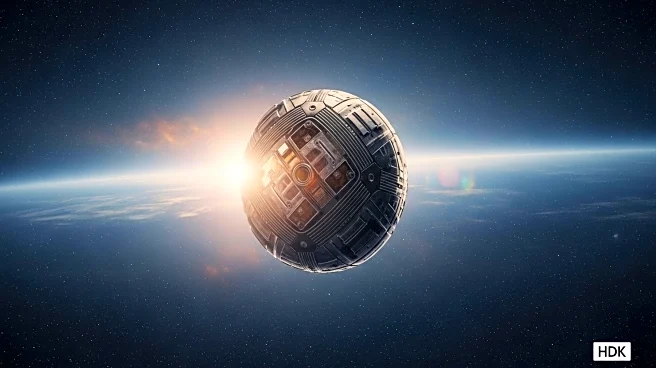What's Happening?
Researchers from the Royal Melbourne Institute of Technology (RMIT) University in Australia have conducted a study demonstrating that Bacillus subtilis, a bacterium essential for human health, can withstand the extreme conditions of space travel. The study involved sending spores of Bacillus subtilis in a 3D-printed microtube holder on a sounding rocket flight to test their resilience against launch, microgravity, and reentry stresses. The bacteria were exposed to accelerations up to 13 times Earth's gravity, a weightless period at 162 miles altitude, and decelerations reaching 30 g during descent. The spores showed no signs of damage and grew normally post-recovery, indicating their potential role in sustaining human life during long-duration space missions.
Why It's Important?
The ability of Bacillus subtilis to survive the harsh conditions of spaceflight is significant for future space missions, particularly those aiming to establish human presence beyond Earth, such as on Mars. Astronauts rely on a healthy microbiome for digestion, immunity, and overall well-being, especially during extended missions. This study suggests that beneficial bacteria can be safely transported on journeys to the moon, Mars, and beyond, aiding in the development of reliable life support systems for waste recycling, food production, and plant growth. Additionally, understanding microbial resilience in space can inform antibacterial treatments and strategies against antibiotic-resistant bacteria on Earth.
What's Next?
The findings from this study could lead to the design of better life support systems for astronauts, ensuring their health during long missions. Future research may focus on testing other microbes directly tied to human health and agriculture under real spaceflight conditions. This could also guide the development of more effective life-detection missions, helping identify and study microbial life forms that could thrive in previously uninhabitable environments.
Beyond the Headlines
The study's implications extend beyond space exploration, offering insights into microbial resilience that could aid in developing new antibacterial treatments on Earth. It also provides fresh clues for the search for life on other planets, potentially guiding missions to detect and study life forms in extreme environments.









